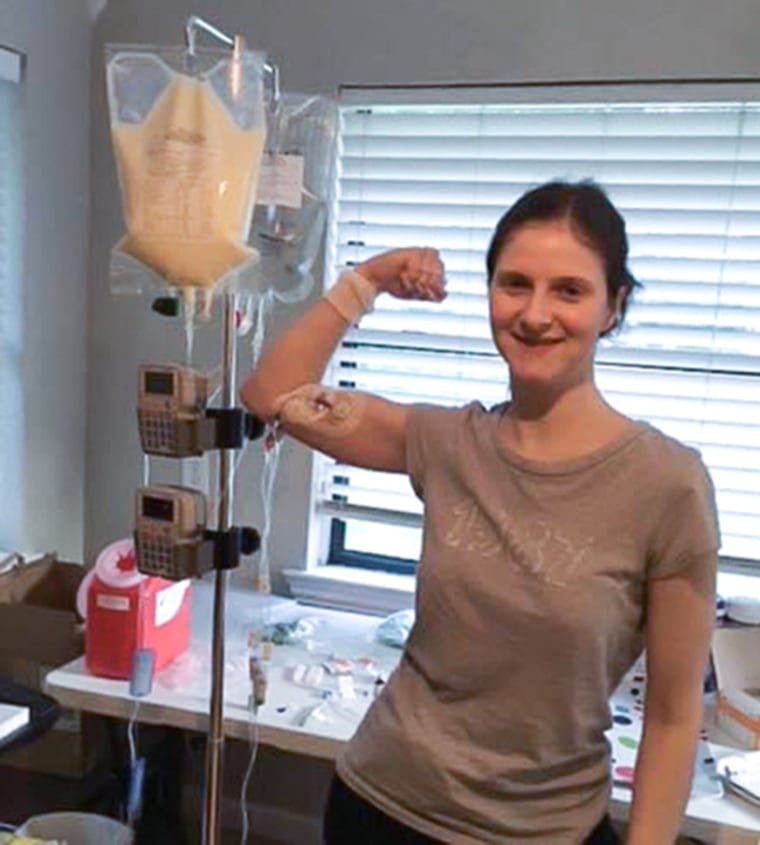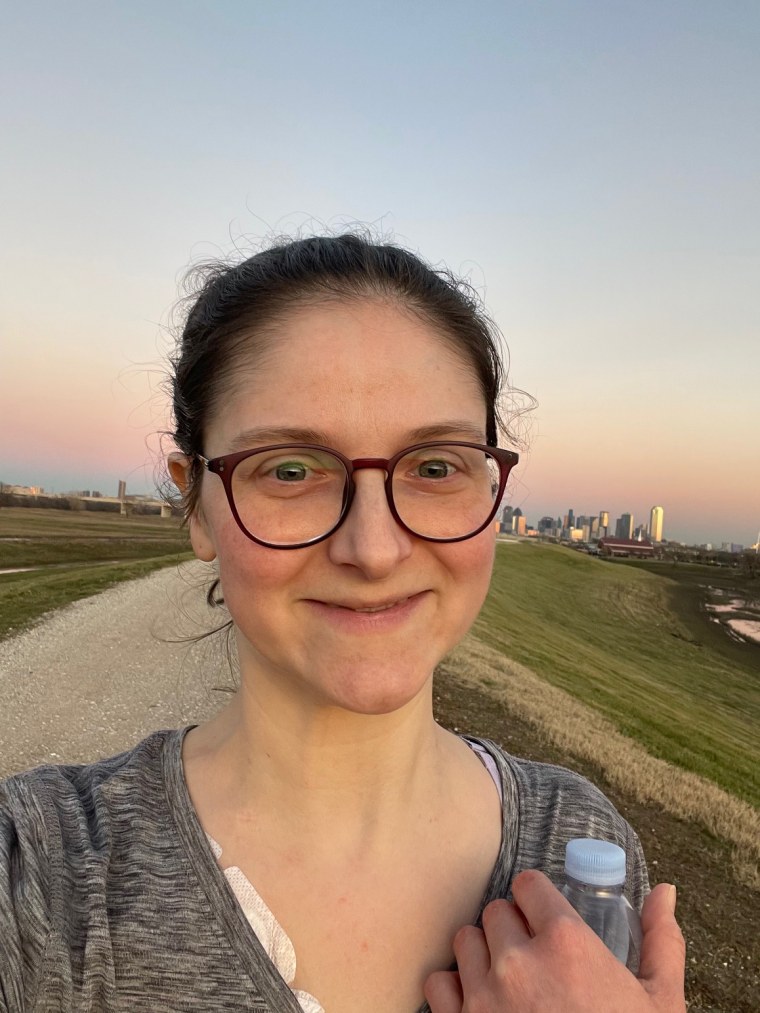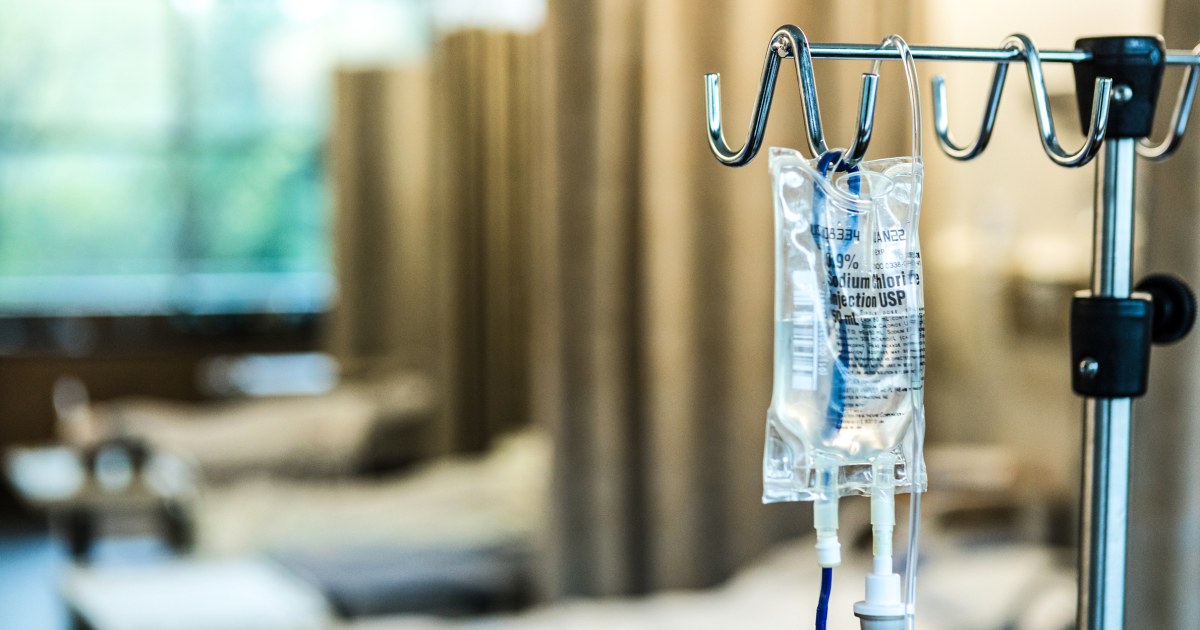Yvonne Hemz was scheduled to have a cancerous tumor removed from her kidney Tuesday.
On Sunday, however, Hemze, 52, of Farmington, Minnesota, got a call from the hospital, Abbott Northwestern, telling her that her surgery had been canceled. The hospital was getting reduced shipments of intravenous fluids, essential for patients during surgeries, after Hurricane Helene damaged a Baxter International facility in North Carolina, leading to its temporary closure. The plant is the nation’s largest producer of IV fluids.
Hemze said she hasn’t been able to get in contact with her doctor since the cancellation and fears her cancer will only get worse.
“The cancer is not going to stop growing just because they can’t have their surgery,” she said.
On Thursday, shortly after NBC News reached out to Allina Health, a network of hospitals that includes Abbott Northwestern, for comment, Hemze said she got a call from her doctor informing her that her surgery had been rescheduled for Friday morning. In a statement, a spokesperson for Allina Health said the hospital had been working to reschedule appointments Thursday and prioritizing cases such as Hemze’s.
Her case is far from unique, however: Hospitals across the United States have said they’re taking steps to conserve their supply of IV fluids, including postponing or canceling nonemergency surgeries. Where possible, patients are provided with Gatorade or water for hydration, instead of IV solutions.
IV fluids do more than deliver drugs or electrolytes directly into a patient’s bloodstream. They’re needed during surgeries to keep patients hydrated, regulate blood pressure and compensate for lost fluid, including blood. Certain IV fluids are used for kidney failure patients; others, as a form of intravenous nutrition.
“They are the lifeblood of treating patients in hospitals and if you turn off hospital supply to these critical IV fluids like normal saline and lactated Ringer’s, it’s almost like turning the water off to your house,” said Dr. Chris DeRienzo, a neonatologist and the chief physician executive of the American Hospital Association. (Lactated Ringer’s is an electrolyte solution, similar to saline.)
There are only a handful of IV fluid manufacturers in the U.S. and abroad, so any disruption can have a significant impact, he said.
On Monday, the AHA urged President Joe Biden to declare a nationwide emergency over the limited supply of IV fluids.
Running out of supply
For Hannah Hale, 37, who lives in Dallas, the Baxter closure meant that her pharmacy could no longer supply the dextrose solution that she depends on.
Hale has Crohn’s disease, and a number of surgeries over the years have left her with only part of her small intestine, meaning her body is barely able to absorb nutrients from her digestive tract. She’s been dependent on IV nutrition, which delivers nutrients directly into her bloodstream, for more than eight years.

On Monday, her pharmacy told her they would no longer be able to provide her dextrose solution — a key component of her IV nutrition — and advised her to switch to another pharmacy.
She called 14 other pharmacies but was unsuccessful in finding one that could provide the medication. Her story was first reported by The New York Times.
“I had two more days’ worth of IV nutrition in my refrigerator,” Hale told NBC News on Thursday.
Her doctor and pharmacist eventually came up with an idea to mix electrolytes with a small volume of saline instead of dextrose, which she received Wednesday. It’s only a temporary solution — the pharmacist won’t be able to do it again — and she’ll run out of it in seven days.
“I don’t know what I’m going to do,” she said.
Working with the government
The federal government is working with Baxter to quickly resolve the supply issue.
On Wednesday, the Food and Drug Administration announced that it would temporarily allow for the importation of IV fluids from Baxter plants in Canada, China, Ireland and the United Kingdom. It remains unclear how long it will take for the product to arrive in the U.S. The FDA did not respond to a request for comment.
The Administration for Strategic Preparedness and Response (ASPR), an agency within the Department of Health and Human Services, has also been helping Baxter get its facility back up and running.

The company said Wednesday that it hopes to return to “90% to 100% allocation” of “certain IV solution” products by year’s end.
Hospitals and distributors will also see an increase in supply of the most in-demand IV fluids: from 40% to 60% and 10% to 60%, respectively.
ASPR is also working with B. Braun Medical, the country’s second-largest maker of IV fluids, to boost supply.
B. Braun Medical temporarily closed two of its facilities in Daytona Beach, Florida, in anticipation of Hurricane Milton. However, Alli Longenhagen, a spokesperson for the company, said Thursday that the facilities didn’t suffer any damage from the storm and would resume operations Friday morning.
Two smaller IV fluid manufacturers in the U.S. are ICU Medical and Fresenius Kabi. Spokespersons for each company said they’ve taken steps to increase supply.
‘An immediate need’
The federal government and manufacturers will need to move quickly.
Dr. Paul Biddinger, chief preparedness and continuity officer at Mass General Brigham in Boston, said the health system has been receiving reduced shipments since the Baxter facility closed.
It has to take steps to conserve its supply, including switching to oral hydration — that is, drinks including Gatorade or water — instead of using IV fluids when possible.
“We’ve been messaging to our nurses, to our physicians,” he said. “Where possible, we want people to find alternatives or to eliminate waste.”
The short supply means patients will continue to struggle.
Robert, a 67-year-old mathematician from Chicago, has kidney disease. This week, he learned that fluid needed for his dialysis was suddenly unavailable.
Robert — who asked that his last name not be used to protect his privacy — said his doctors scrambled to find an alternative, forcing him to use a more time-consuming treatment.
“There are people that are not going to make it because of this, because I know if I don’t get dialysis every day, every other day, I’m not going to make it,” he said. “It’s an immediate need.”

Leave a Reply